#peter stafford
Explore tagged Tumblr posts
Text

Peter Stafford (aka Paul Tabori) - The Wild White Witch - Zebra - 1973 (cover illustration by Ron Walotsky)
#witches#wild witches#occult#vintage#the wild white witch#white witch#wild#white#witch#zebra books#peter stafford#paul tabori#ron walotsky#1973
141 notes
·
View notes
Text

PSYCHEDELICS ENCYCLOPEDIA - $90
1 note
·
View note
Text
Real innovation vs Silicon Valley nonsense

This is the LAST DAY to get my bestselling solarpunk utopian novel THE LOST CAUSE (2023) as a $2.99, DRM-free ebook!

If there was any area where we needed a lot of "innovation," it's in climate tech. We've already blown through numerous points-of-no-return for a habitable Earth, and the pace is accelerating.
Silicon Valley claims to be the epicenter of American innovation, but what passes for innovation in Silicon Valley is some combination of nonsense, climate-wrecking tech, and climate-wrecking nonsense tech. Forget Jeff Hammerbacher's lament about "the best minds of my generation thinking about how to make people click ads." Today's best-paid, best-trained technologists are enlisted to making boobytrapped IoT gadgets:
https://pluralistic.net/2024/05/24/record-scratch/#autoenshittification
Planet-destroying cryptocurrency scams:
https://pluralistic.net/2024/02/15/your-new-first-name/#that-dagger-tho
NFT frauds:
https://pluralistic.net/2022/02/06/crypto-copyright-%f0%9f%a4%a1%f0%9f%92%a9/
Or planet-destroying AI frauds:
https://pluralistic.net/2024/01/29/pay-no-attention/#to-the-little-man-behind-the-curtain
If that was the best "innovation" the human race had to offer, we'd be fucking doomed.
But – as Ryan Cooper writes for The American Prospect – there's a far more dynamic, consequential, useful and exciting innovation revolution underway, thanks to muscular public spending on climate tech:
https://prospect.org/environment/2024-05-30-green-energy-revolution-real-innovation/
The green energy revolution – funded by the Bipartisan Infrastructure Act, the Inflation Reduction Act, the CHIPS Act and the Science Act – is accomplishing amazing feats, which are barely registering amid the clamor of AI nonsense and other hype. I did an interview a while ago about my climate novel The Lost Cause and the interviewer wanted to know what role AI would play in resolving the climate emergency. I was momentarily speechless, then I said, "Well, I guess maybe all the energy used to train and operate models could make it much worse? What role do you think it could play?" The interviewer had no answer.
Here's brief tour of the revolution:
2023 saw 32GW of new solar energy come online in the USA (up 50% from 2022);
Wind increased from 118GW to 141GW;
Grid-scale batteries doubled in 2023 and will double again in 2024;
EV sales increased from 20,000 to 90,000/month.
https://www.whitehouse.gov/briefing-room/blog/2023/12/19/building-a-thriving-clean-energy-economy-in-2023-and-beyond/
The cost of clean energy is plummeting, and that's triggering other areas of innovation, like using "hot rocks" to replace fossil fuel heat (25% of overall US energy consumption):
https://rondo.com/products
Increasing our access to cheap, clean energy will require a lot of materials, and material production is very carbon intensive. Luckily, the existing supply of cheap, clean energy is fueling "green steel" production experiments:
https://www.wdam.com/2024/03/25/americas-1st-green-steel-plant-coming-perry-county-1b-federal-investment/
Cheap, clean energy also makes it possible to recover valuable minerals from aluminum production tailings, a process that doubles as site-remediation:
https://interestingengineering.com/innovation/toxic-red-mud-co2-free-iron
And while all this electrification is going to require grid upgrades, there's lots we can do with our existing grid, like power-line automation that increases capacity by 40%:
https://www.npr.org/2023/08/13/1187620367/power-grid-enhancing-technologies-climate-change
It's also going to require a lot of storage, which is why it's so exciting that we're figuring out how to turn decommissioned mines into giant batteries. During the day, excess renewable energy is channeled into raising rock-laden platforms to the top of the mine-shafts, and at night, these unspool, releasing energy that's fed into the high-availability power-lines that are already present at every mine-site:
https://www.euronews.com/green/2024/02/06/this-disused-mine-in-finland-is-being-turned-into-a-gravity-battery-to-store-renewable-ene
Why are we paying so much attention to Silicon Valley pump-and-dumps and ignoring all this incredible, potentially planet-saving, real innovation? Cooper cites a plausible explanation from the Apperceptive newsletter:
https://buttondown.email/apperceptive/archive/destructive-investing-and-the-siren-song-of/
Silicon Valley is the land of low-capital, low-labor growth. Software development requires fewer people than infrastructure and hard goods manufacturing, both to get started and to run as an ongoing operation. Silicon Valley is the place where you get rich without creating jobs. It's run by investors who hate the idea of paying people. That's why AI is so exciting for Silicon Valley types: it lets them fantasize about making humans obsolete. A company without employees is a company without labor issues, without messy co-determination fights, without any moral consideration for others. It's the natural progression for an industry that started by misclassifying the workers in its buildings as "contractors," and then graduated to pretending that millions of workers were actually "independent small businesses."
It's also the natural next step for an industry that hates workers so much that it will pretend that their work is being done by robots, and then outsource the labor itself to distant Indian call-centers (no wonder Indian techies joke that "AI" stands for "absent Indians"):
https://pluralistic.net/2024/05/17/fake-it-until-you-dont-make-it/#twenty-one-seconds
Contrast this with climate tech: this is a profoundly physical kind of technology. It is labor intensive. It is skilled. The workers who perform it have power, both because they are so far from their employers' direct oversight and because these fed-funded sectors are more likely to be unionized than Silicon Valley shops. Moreover, climate tech is capital intensive. All of those workers are out there moving stuff around: solar panels, wires, batteries.
Climate tech is infrastructural. As Deb Chachra writes in her must-read 2023 book How Infrastructure Works, infrastructure is a gift we give to our descendants. Infrastructure projects rarely pay for themselves during the lives of the people who decide to build them:
https://pluralistic.net/2023/10/17/care-work/#charismatic-megaprojects
Climate tech also produces gigantic, diffused, uncapturable benefits. The "social cost of carbon" is a measure that seeks to capture how much we all pay as polluters despoil our shared world. It includes the direct health impacts of burning fossil fuels, and the indirect costs of wildfires and extreme weather events. The "social savings" of climate tech are massive:
https://arstechnica.com/science/2024/05/climate-and-health-benefits-of-wind-and-solar-dwarf-all-subsidies/
For every MWh of renewable power produced, we save $100 in social carbon costs. That's $100 worth of people not sickening and dying from pollution, $100 worth of homes and habitats not burning down or disappearing under floodwaters. All told, US renewables have delivered $250,000,000,000 (one quarter of one trillion dollars) in social carbon savings over the past four years:
https://arstechnica.com/science/2024/05/climate-and-health-benefits-of-wind-and-solar-dwarf-all-subsidies/
In other words, climate tech is unselfish tech. It's a gift to the future and to the broad public. It shares its spoils with workers. It requires public action. By contrast, Silicon Valley is greedy tech that is relentlessly focused on the shortest-term returns that can be extracted with the least share going to labor. It also requires massive public investment, but it also totally committed to giving as little back to the public as is possible.
No wonder America's richest and most powerful people are lining up to endorse and fund Trump:
https://prospect.org/blogs-and-newsletters/tap/2024-05-30-democracy-deshmocracy-mega-financiers-flocking-to-trump/
Silicon Valley epitomizes Stafford Beer's motto that "the purpose of a system is what it does." If Silicon Valley produces nothing but planet-wrecking nonsense, grifty scams, and planet-wrecking, nonsensical scams, then these are all features of the tech sector, not bugs.
As Anil Dash writes:
Driving change requires us to make the machine want something else. If the purpose of a system is what it does, and we don’t like what it does, then we have to change the system.
https://www.anildash.com/2024/05/29/systems-the-purpose-of-a-system/
To give climate tech the attention, excitement, and political will it deserves, we need to recalibrate our understanding of the world. We need to have object permanence. We need to remember just how few people were actually using cryptocurrency during the bubble and apply that understanding to AI hype. Only 2% of Britons surveyed in a recent study use AI tools:
https://www.bbc.com/news/articles/c511x4g7x7jo
If we want our tech companies to do good, we have to understand that their ground state is to create planet-wrecking nonsense, grifty scams, and planet-wrecking, nonsensical scams. We need to make these companies small enough to fail, small enough to jail, and small enough to care:
https://pluralistic.net/2024/04/04/teach-me-how-to-shruggie/#kagi
We need to hold companies responsible, and we need to change the microeconomics of the board room, to make it easier for tech workers who want to do good to shout down the scammers, nonsense-peddlers and grifters:
https://pluralistic.net/2023/07/28/microincentives-and-enshittification/
Yesterday, a federal judge ruled that the FTC could hold Amazon executives personally liable for the decision to trick people into signing up for Prime, and for making the unsubscribe-from-Prime process into a Kafka-as-a-service nightmare:
https://arstechnica.com/tech-policy/2024/05/amazon-execs-may-be-personally-liable-for-tricking-users-into-prime-sign-ups/
Imagine how powerful a precedent this could set. The Amazon employees who vociferously objected to their bosses' decision to make Prime as confusing as possible could have raised the objection that doing this could end up personally costing those bosses millions of dollars in fines:
https://pluralistic.net/2023/09/03/big-tech-cant-stop-telling-on-itself/
We need to make climate tech, not Big Tech, the center of our scrutiny and will. The climate emergency is so terrifying as to be nearly unponderable. Science fiction writers are increasingly being called upon to try to frame this incomprehensible risk in human terms. SF writer (and biologist) Peter Watts's conversation with evolutionary biologist Dan Brooks is an eye-opener:
https://thereader.mitpress.mit.edu/the-collapse-is-coming-will-humanity-adapt/
They draw a distinction between "sustainability" meaning "what kind of technological fixes can we come up with that will allow us to continue to do business as usual without paying a penalty for it?" and sustainability meaning, "what changes in behavior will allow us to save ourselves with the technology that is possible?"
Writing about the Watts/Brooks dialog for Naked Capitalism, Yves Smith invokes William Gibson's The Peripheral:
With everything stumbling deeper into a ditch of shit, history itself become a slaughterhouse, science had started popping. Not all at once, no one big heroic thing, but there were cleaner, cheaper energy sources, more effective ways to get carbon out of the air, new drugs that did what antibiotics had done before…. Ways to print food that required much less in the way of actual food to begin with. So everything, however deeply fucked in general, was lit increasingly by the new, by things that made people blink and sit up, but then the rest of it would just go on, deeper into the ditch. A progress accompanied by constant violence, he said, by sufferings unimaginable.
https://www.nakedcapitalism.com/2024/05/preparing-for-collapse-why-the-focus-on-climate-energy-sustainability-is-destructive.html
Gibson doesn't think this is likely, mind, and even if it's attainable, it will come amidst "unimaginable suffering."
But the universe of possible technologies is quite large. As Chachra points out in How Infrastructure Works, we could give every person on Earth a Canadian's energy budget (like an American's, but colder), by capturing a mere 0.4% of the solar radiation that reaches the Earth's surface every day. Doing this will require heroic amounts of material and labor, especially if we're going to do it without destroying the planet through material extraction and manufacturing.
These are the questions that we should be concerning ourselves with: what behavioral changes will allow us to realize cheap, abundant, green energy? What "innovations" will our society need to focus on the things we need, rather than the scams and nonsense that creates Silicon Valley fortunes?
How can we use planning, and solidarity, and codetermination to usher in the kind of tech that makes it possible for us to get through the climate bottleneck with as little death and destruction as possible? How can we use enforcement, discernment, and labor rights to thwart the enshittificatory impulses of Silicon Valley's biggest assholes?

If you'd like an essay-formatted version of this post to read or share, here's a link to it on pluralistic.net, my surveillance-free, ad-free, tracker-free blog:
https://pluralistic.net/2024/05/30/posiwid/#social-cost-of-carbon
#pluralistic#ai#hype#anil dash#stafford beer#amazon#prime#scams#dark patterns#POSIWID#the purpose of a system is what it does#climate#economics#innovation#renewables#social cost of carbon#green energy#solar#wind#ryan cooper#peter watts#the jackpot#ai hype#chips act#ira#inflation reduction act#infrastructure#deb chachra
157 notes
·
View notes
Text
Vermont Governor DILFs

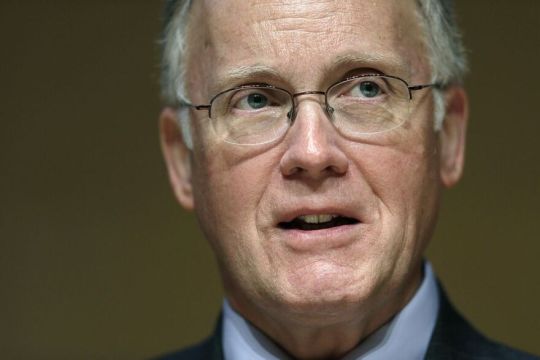
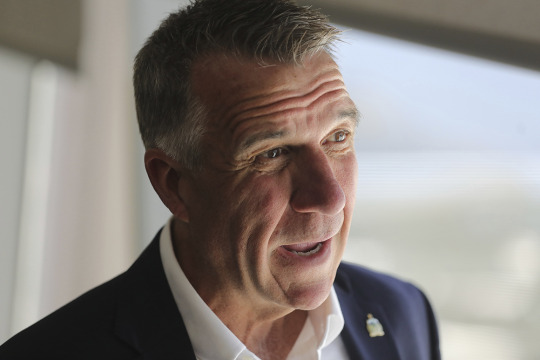
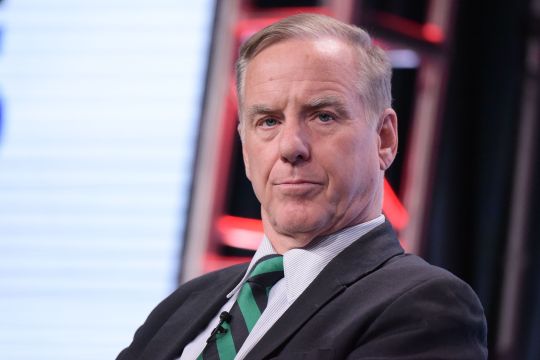
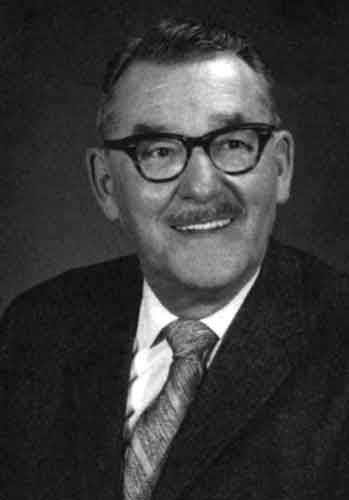
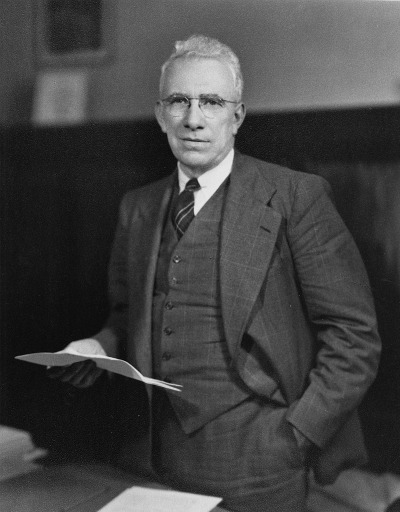
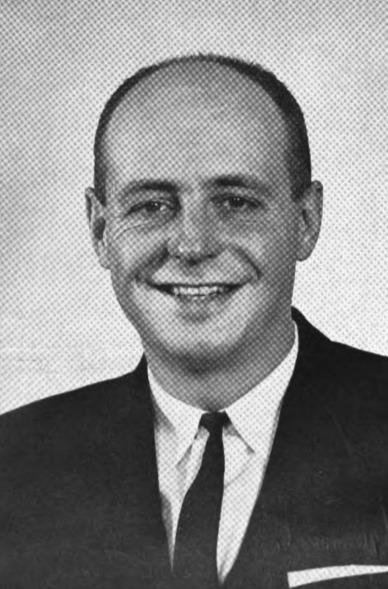

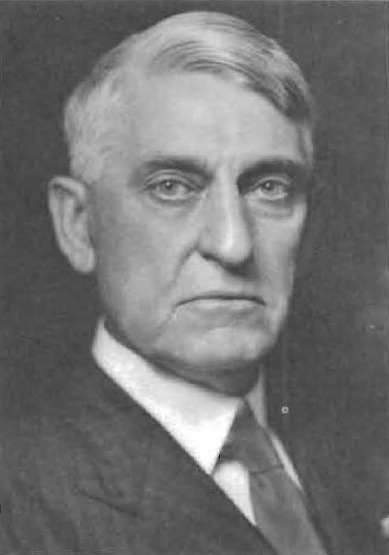
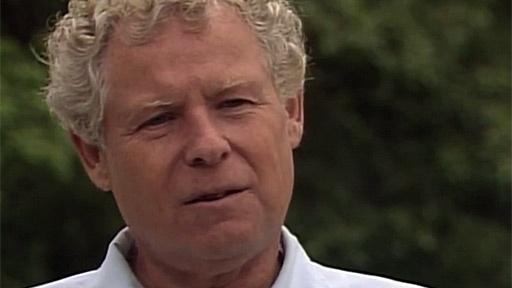
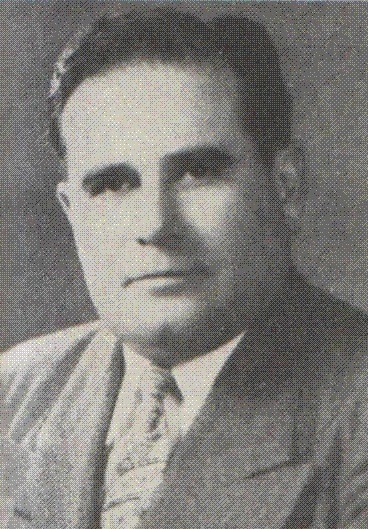

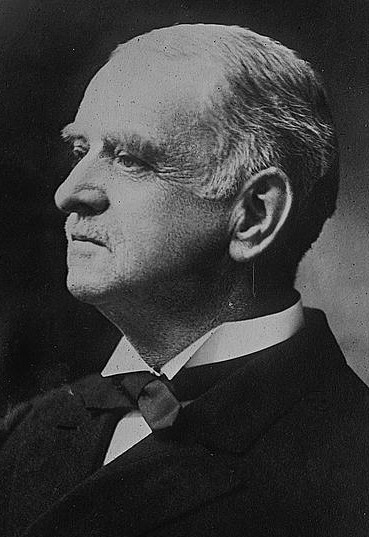
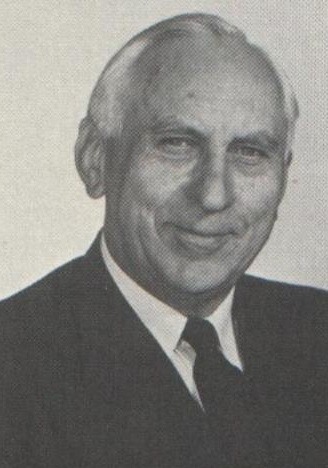
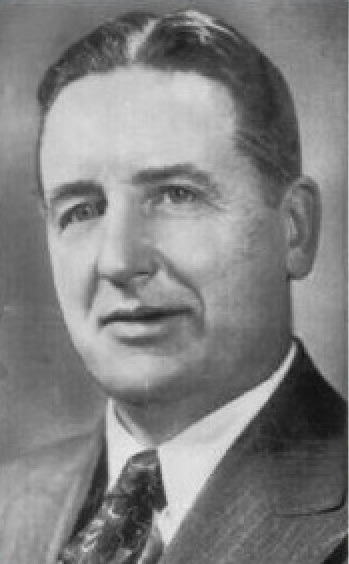

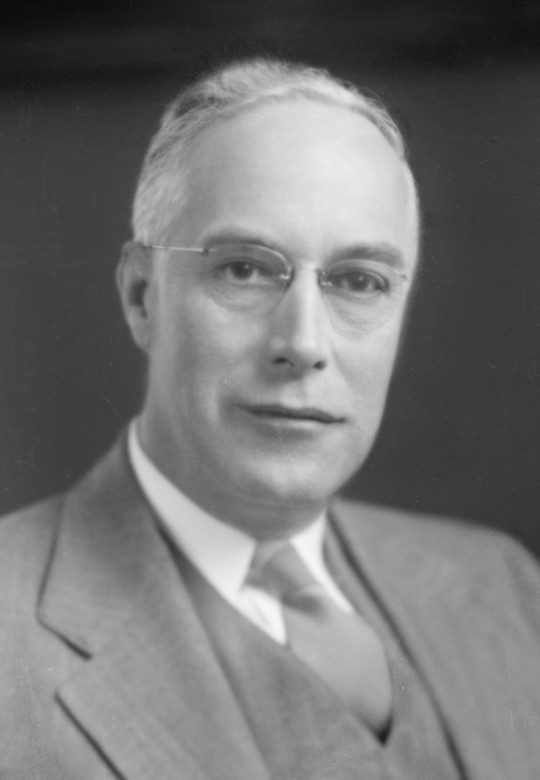


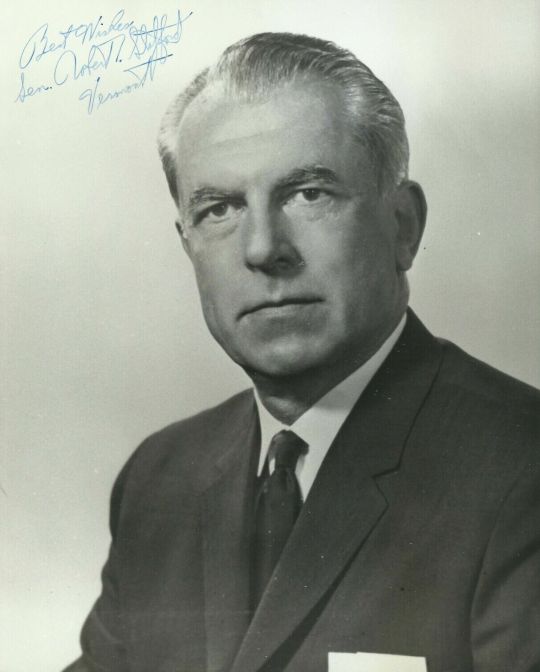
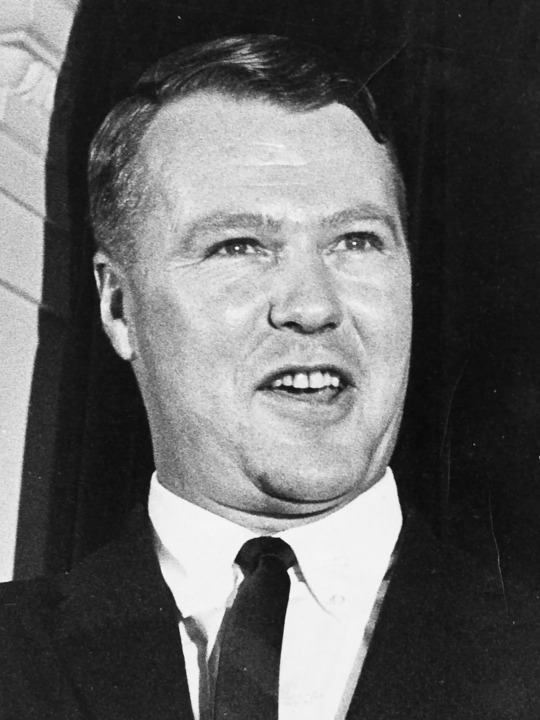

Peter Shumlin, Jim Douglas, Phil Scott, Howard Dean, Deane C. Davis, George Aiken, F. Ray Keyser Jr., Franklin S. Billings, Charles Manley Smith, Richard A. Snelling, Harold J. Arthur, Horace F. Graham, John A. Mead, Joseph B. Johnson, Lee E. Emerson, Thomas P. Salmon, William Henry Wills, Mortimer R. Proctor, Ernest W. Gibson Jr., Robert Stafford, Philip H. Hoff, Allen M. Fletcher
#Peter Shumlin#Jim Douglas#Phil Scott#Howard Dean#Deane C. Davis#George Aiken#F. Ray Keyser Jr.#Franklin S. Billings#Charles Manley Smith#Richard A. Snelling#Harold J. Arthur#Horace F. Graham#John A. Mead#Joseph B. Johnson#Lee E. Emerson#Thomas P. Salmon#William Henry Wills#Mortimer R. Proctor#Ernest W. Gibson Jr.#Robert Stafford#Philip H. Hoff#Allen M. Fletcher#GovernorDILFs
24 notes
·
View notes
Text


1977, Kensington, London, UK - Freddie Mercury with Mary Austin hosting a dinner party for his friends (some present in these photos Peter Straker and illustrator and author Nicola Bayley) at his flat, Stafford Terrace
📷 Photos by Terence Spencer
🔸"I produce and support young talents, like my friend Peter Straker"
- Freddie Mercury
Interview 1978 Bravo Magazine
#freddie mercury#queen band#london#zanzibar#legend#queen#brian may#john deacon#freddiebulsara#roger taylor#peter straker#1977#1978 interview#nicola bayley#stafford terrace#kensington
24 notes
·
View notes
Text




Peter and Brianna went out on a date. Peter finally completed his Soulmate aspiration and they spottet some familiar faces in the café.
#TS4Gameplay#TS4#ts4vanilla#ts4 vanilla#TS4BACCR19#family jenkins#jenkins gen2#Brianna Filmore#Peter Jenkins#Olivia Harding#Bianca Stafford
6 notes
·
View notes
Text
Cornish Pastiche
TWELFTH NIGHT: A Cornish Tale Gatehouse Theatre, Stafford, Tuesday 25th June 2024 I will admit that 1950s Cornwall doesn’t immediately spring to mind when I think of Illyria, but there is where director Sean Turner sets his production of one of Shakespeare’s finest comedies. And I will also admit it is, for the most part, a good fit. We begin, not with Orsino’s famous opening line, but with a…

View On WordPress
#Alfie Heywood#Andre Bullock#Barry Smith#Benedict Landsbert-Noon#Bob Golding#Callum Sim#Evolution of Fishermen#Gatehouse Theatre#Hattie North#Liz Jadav#Molly Windsor#Natalie Anderson#Peter Watts#review#Sean Turner#Seann Walsh#Sha Dessi#Stafford#Twelfth Night#William Shakespeare
1 note
·
View note
Text
Understanding systems thinking
I’m a member of the Agri-Foods for Net Zero network, and it runs a good series of knowledge sharing events. (I’ve written about AFNZ here before). Last month it invited one of Britain’s leading systems academics, Gerald Midgley, to do an introductory talk on using systems thinking to explore complex problems. All of the images here are courtesy of Gerald Midgley, who generously shared his slides…

View On WordPress
#Agri-Foods for Net Zero#Derek and Laura Cabrera#Gerald Midgley#Peter Checkland#Stafford Beer#systems
0 notes
Text
Amphibians of Reality, Breathing Truth and Fiction
William Stafford, et al.: 'Amphibians of Reality, Breathing Truth and Fiction'

[Image: “CROATOAN,” by John E. Simpson. (Shared here under a Creative Commons License; for more information, see this page at RAMH.) For details about this photo, see the note at the foot of this post.] From whiskey river: Adrift Let my dreams while I’m wide-awakeloose. Let me be drowned, baptized,in the light given me. Day comes around,night, fall, winter, spring,summer. Leaves overhead,…
View On WordPress
#Jane Hirshfield#fiction vs. real life#William Stafford#J.G. Ballard#Maxims for Nostalgists#jesstorypix#Olivie Blake#Peter Brooks
1 note
·
View note
Text


Peter Murphy performing with Bauhaus at Futurama Festival in New Bingley Hall, Stafford, 1981, as captured by Steve Rapport.
398 notes
·
View notes
Text
Shuffled Songs
rules: put your music library on shuffle, then list the first five songs that come up in a poll to let people vote for their favourite!
Tagged by @recurringwriter.
I'll tag @bosspigeon, @boghermit, @razrogue, @mortuaryribbon, @jackalopedread
@faerieenthusiast, @void-singer, @lucius-the-sinful, @kirbles, @peachiehambo and YOU.
ajsdhgkjasdhf These are crazy but also I omitted two wo/rld of wa/rcraft songs that came up: Tempest's Wake by Glenn Stafford and Stormwind by Jason Hayes.
15 notes
·
View notes
Photo

Peter Stafford (assembler) - Psychedelic Baby Reaches Puberty - Academy Editions - 1972
#witches#puberals#occult#vintage#psychedelic baby reaches puberty#academy editions#peter stafford#1972
34 notes
·
View notes
Text

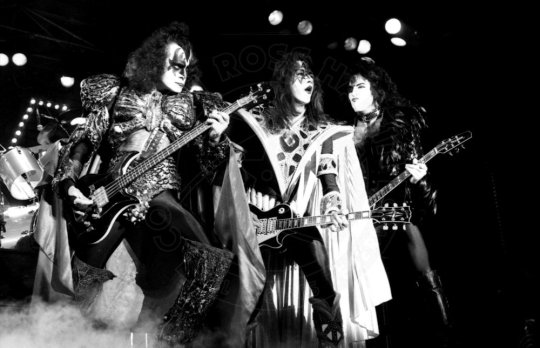

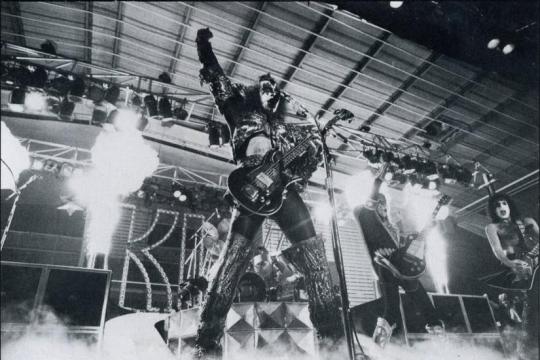
September 5, 1980
unmasked tour
Bingley hall - Stafford, England
📸: Ross Halfin
"Truth to tell, the last couple of the band's concerts I attended in the States were really very much perfunctory, going through-the-motions sort of affairs. While the gigs were enjoyable on the level of total extravagance, it was obvious that the KIϟϟ members themselves had become jaded and disenchanted with their roles, like a quartet of actors who've played the same parts in the same play for so long that their performances have become quite spiritless. But the departure of Peter Criss (always a weak link) and the arrival of the excellent Eric Carr has heralded a new beginning for the group. The Foxy fellow doesn't bother to sing 'Beth' from a stool and toss red roses into the audience, he just concentrates on the job at hand and contributes a less pedestrian, more driving beat than his predecessor, strengthening up the band's backbone for the first time in years" (Sounds, 9/13/80).
Iron Maiden, who had then recently toured the U.K. in support of their debut album, took a break for KIϟϟ' U.K. leg. KIϟϟ conducted a U.K. press conference on September 4 after arriving in country on the 3rd. The band was invited to a dinner at Legends on Old Burlington Street on the evening of the 4th. The guests included representatives from Phonogram including managing directors, product and marketing managers, and A&R/press staff.
#kisstory#1980#unmasked#kiss#eric carr#ace frehley#paul stanley#gene simmons#kiss band#kiss army#the fox#the spaceman#the starchild#the demon
77 notes
·
View notes
Note
hope you're doing well 💗💗💗 would love to know your favorite books and the ones that have inspired you as a writer <3
Hello my darling! 💙 What a wonderful, wonderful ask, because there are SO many I could list off! All of my writing is always an amalgamation of every book, fic, movie, TV show, piece of music, article, and life experience I've ever had, but there are definitely some writers whose stories and/or writing styles have stuck with me more than others.
In general, I was very influenced by the fantasy, science fiction, and historical mysteries that I read when I was younger, and look back on all the things I read then with great fondness! Some of my favorites as a kid/teenager were: Susan Cooper (The Dark is Rising), Tamora Pierce (everything!), JRR Tolkien, JK Rowling (I know, I know - but I can't go back and unread them), Diana Wynne Jones (but I preferred Chrestomanci over Howl's Moving Castle), CS Lewis, Rick Riordan, Robin Hobb (The Blue Sword), Lloyd Alexander (Prydain), Ellis Peters (Cadfael), Lindsey Davis (The Silver Pigs), Candace Robb (The Nun's Tale), Timothy Zahn (Star Wars - Thrawn), Aaron Allston (Star Wars - X-Wings), Michael Stackpole (Star Wars - X-Wings)...I could go on for awhile here, lol. I read constantly as a kid, both things I should and things I shouldn't have been reading, so much so that there were weeks when I was reading a new book every day! I also loved myths and legends, so I read Le Mort d'Arthur, The Odyssey, Gilgamesh - all the usual suspects.
As I got older I mixed fiction with nonfiction and poetry, and started reading a lot of subject-specific academic material in undergrad and in my master's program after that. Quite a few writers from that time now influence me as well, building on the foundation of everything that came before: James Baldwin, bell hooks, Barbara Brown Taylor, Anne Lamott, Mary Oliver, Henri Nouwen, Kate Bowler, William Stafford, Howard Thurman, Audre Lorde, Wendell Barry, Rachel Held Evans, Thomas Merton, Nelson Mandela...there are also too many to name here, lol, and if you follow the common thread that unites all these folks, you'll probably learn a lot about how I see the world. And that, too, is something that always makes its way into my writing! 😅
I'm sort of inspired by everything, haha, but I've tried to give a pretty good list of authors, so that maybe they'll inspire you, too! 💙
7 notes
·
View notes
Text
Who Was Joe Fanelli? Pt. 2
Relationship With Freddie
This is where we start to enter speculation territory, as there isn’t more information readily available (at least that I’ve found through doing research) on the specific start and end dates of Joe and Freddie’s relationship.
Queen played a show in Boston, Massachusetts on November 13, 1978 as part of their Jazz 1978 Tour, followed by a show in Providence, Rhode Island on November 14, and then two shows in New York City on November 16 and 17. It’s not unreasonable to believe that Freddie might have met Joe around this time.
There is photo documentation showing that Joe was with Freddie at Queen’s March 1, 1979 show in Paris, France and in Japan (show dates ranging from April 13 through May 6) as part of their Live Killers Tour of Europe.
Their relationship ended certainly before November of 1979 as Peter Freestone began his employment with Queen at this time, and in his second book written in collaboration with David Evans (published 2003), Peter says the following:
I had heard of Joe Fanelli before I actually met him. He had been spoken of by the band, Freddie and their friends when I started working for Queen in 1979. The impression I received of him was that of an American, small-town country boy who had become caught up in Freddie’s whirlwind. Freddie preferred to find a ‘clean slate’ as far as material for relationships was concerned and then to imprint his own stamp on them. From what I gather, Joe had not been able to cope with all the pressures unintentionally put upon him by the process of being ‘imprinted.’ He had walked out of Freddie’s house and their relationship but not from Freddie’s life because Freddie had taken it upon himself to guarantee the conditions for Joe’s alien residency in England. (Freestone, pg. 48-49)
Due to the pressure of having to hide their relationship from the public eye—in a lifestyle of fame that provides little to no respite from being perceived publicly—and having to keep up with said famous lifestyle, Joe did develop a heavy drinking habit. This possibly contributed to their relationship’s end, as Joe did achieve sobriety after he and Freddie separated.
The story of their breakup is further corroborated by (less than reliable when it comes to Queen history and timelines) David Minns, in his book written in collaboration with David Evans.
David Minns—Freddie’s first boyfriend, with whom he cheated on Mary—was receiving similar treatment and being cheated on by Freddie with Joe. Freddie was bold enough to have them interact at times.



All photos included in This Was The Real Life, courtesy of David Minns. Photo 1 Caption: Cherry Brown, David Minns, Freddie and how weird for Joe Fanelli Photo 2 Caption: David Minns, Freddie Mercury, Joe Fanelli, Peter Straker. 'The night Freddie and I broke up.' Photo 3 Caption: Freddie, Peter Straker, Mike Allison, Wendy Allison, Joe Fanelli
According to David, “Freddie had decided that he had found a new lover and that the young man, Joe Fanelli, would be moving in with Freddie at his new flat in Stafford Terrace.” Some time after this, David received a phone call from Freddie “seeking solace. Freddie confessed that Joe had flown back to New York and taken money and belongings from Stafford Terrace.”
(Several sources date Freddie moving into Stafford Terrace in 1976, and as previously stated, please keep in mind that David Minns’ recounting of the timeline of events is questionable.)
If David is to be believed, at some point after this, Joe returned to England and continued to live and work in London after Freddie had originally moved him there in 1978.
Freddie and Joe reconnected in 1983 for Freddie’s thirty-seventh birthday celebration hosted in Los Angeles, California. According to Peter Freestone in his first book in collaboration with David Evans (published 1998), Peter writes:
Freddie wanted Joe Fanelli to cook for the party and Joe duly arrived from London. The occasion marked the rapprochement between Freddie and Joe who had been working independently as a chef in several London restaurants including September’s in Fulham Road since the break-up of their relationship. (Freestone, pg. 90)
Joe would later be employed full-time and move into Garden Lodge in 1985.
#look for reblogs coming with photos during this time period!#the joe-verview#joe fanelli#fanellifest2024
24 notes
·
View notes
Text
Summer break and I'm kinda sorta missing F1 so here are the UK number one songs when drivers got their first Grand Prix win. Enjoy 😊
Giuseppe Farina (1950 British GP - 13th May), Juan Manuel Fangio (1950 Monaco GP - 21st May) & Johnnie Parsons (1950 Indy 500 - 30th May) - Billy Eckstine - My Foolish Heart
Lee Wallard (1951 Indy 500 - 30th May) - Les Paul & Mary Ford - Mockin' Bird Hill
Luigi Fagioli (1951 French GP - 1st July) & Jose Froilan Gonzalez (1951 British GP - 14th July) - Nelson Eddy & Jo Stafford - With These Hands
Alberto Ascari (1951 German GP - 29th July) - Hoagy Carmichael - My Resistance Is Low
Piero Taruffi (1952 Swiss GP - 18th May) - Nat 'King' Cole - Unforgettable
Troy Ruttman (1952 Indy 500 - 30th May) - Jo Stafford - Ay-Round The Corner
Bill Vukovich (1953 Indy 500 - 30th May) & Mike Hawthorn (1953 French GP - 5th July) - Frankie Laine - I Believe
Maurice Trintignant (1955 Monaco GP - 22nd May) - Tony Bennett - Stranger In Paradise
Bob Sweikert (1955 Indy 500 - 30th May) - Eddie Calvert - Cherry Pink And Apple Blossom White
Stirling Moss (1955 British GP - 16th July) - Alma Cogan - Dreamboat
Luigi Musso (1956 Argentine GP - 22nd January) - Tennessee Ernie Ford - Sixteen Tons
Pat Flaherty (1956 Indy 500 - 30th May) & Peter Collins (1956 Belgian GP - 3rd June) - Ronnie Hilton - No Other Love
Sam Hanks (1957 Indy 500 - 30th May) - Andy Williams - Butterfly
Tony Brooks (1957 British GP - 20th July) - Elvis Presley - All Shook Up
Jimmy Bryan (1958 Indy 500 - 30th May) - Connie Francis - Who's Sorry Now
Jack Brabham (1959 Monaco GP - 10th May) - Buddy Holly - It Doesn't Matter Anymore
Rodger Ward (1959 Indy 500 - 30th May) & Jo Bonnier (1959 Dutch GP - 31st May) - Elvis Presley - A Fool Such As I
Bruce McLaren (1959 US GP - 12th December) - Adam Faith - What Do You Want?
Jim Rathmann (1960 Indy 500 - 30th May) - The Everly Brothers - Cathy's Clown
Phil Hill (1960 Italian GP - 4th September) - The Shadows - Apache
Wolfgang Von Trips (1961 Dutch GP - 22nd May) - Floyd Cramer - On The Rebound
Giancarlo Baghetti (1961 French GP - 2nd July) - Del Shannon - Runaway
Innes Ireland (1961 US GP - 8th October) - The Shadows - Kon-Tiki
Graham Hill (1962 Dutch GP - 20th May) - B Bumble & The Stingers - Nut Rocker
Jim Clark (1962 Belgian GP - 17th June) - Elvis Presley - Good Luck Charm
Dan Gurney (1962 French GP - 8th July) - Mike Sarne & Wendy Richard - Come Outside
John Surtees (1963 German GP - 4th August) - Elvis Presley - Devil In Disguise
Lorenzo Bandini (1964 Austrian GP - 23rd August) - Manfred Man - Do Wah Diddy Diddy
Jackie Stewart (1965 Italian GP - 12th September) - The Rolling Stones - (I Can't Get No) Satisfaction
Richie Ginther (1965 Mexican GP - 24th October) - Ken Dodd - Tears
Ludovico Scarfiotti (1966 Italian GP - 4th September) - The Beatles - Yellow Submarine
Pedro Rodriguez (1967 South African GP - 2nd January) - Tom Jones - Green Green Grass Of Home
Denny Hulme (1967 Monaco GP - 7th May) - Sandie Shaw - Puppet On A String
Jacky Ickx (1968 French GP - 7th July) & Jo Siffert (1968 British GP - 20th July) - Equals - Baby Come Back
Jochen Rindt (1969 US GP - 5th October) - Jane Birkin & Serge Gainsbourg - Je T'aime... Mon Non Plus
Clay Regazzoni (1970 Italian GP - 6th September) - Smokey Robinson & The Miracles - Tears Of A Clown
Emerson Fittipaldi (1970 US GP - 4th October) - Freda Payne - Band Of Gold
Mario Andretti (1971 South African GP - 6th March) - Mungo Jerry - Baby Jump
Peter Gethin (1971 Italian GP - 5th September) - Diana Ross - I'm Still Waiting
Francois Cevert (1971 US GP - 3rd October) - Rod Stewart - Maggie May
Jean-Pierre Beltoise (1972 Monaco GP - 14th May) - T-Rex - Metal Guru
Ronnie Peterson (1973 French GP - 1st July) - Donny Osmond - Young Love
Peter Revson (1973 British GP - 14th July) - Slade - Skweeze Me Pleeze Me
Carlos Reutemann (1974 South African GP - 30th March) - Paper Lace - Billy Don't Be A Hero
Niki Lauda (1974 Spanish GP - 28th April) - Abba - Waterloo
Jody Scheckter (1974 Swedish GP - 9th June) - Ray Stevens - The Streak
Jose Carlos Pace (1975 Brazilian GP - 26th January) - Pilot - January
Jochen Mass - (1975 Spanish GP - 27th April) - Mud - Oh Boy
James Hunt (1975 Dutch GP - 22nd June) - 10CC - I'm Not In Love
Vittorio Brambilla (1975 Austrian GP - 17th August) - The Stylistics - I Can't Give You Anything (But My Love)
John Watson (1976 Austrian GP - 15th August) - Elton John & Kiki Dee - Don't Go Breaking My Heart
Gunnar Nilsson (1977 Belgian GP - 5th June) - Rod Stewart - I Don't Want To Talk About It
Jacques Laffite (1977 Swedish GP - 19th June) - The Jacksons - Show You The Way To Go
Alan Jones (1977 Austrian GP - 14th August) - Brotherhood Of Man - Angelo
Patrick Depailler (1978 Monaco GP - 7th May) - Boney M - Rivers Of Babylon
Gilles Villeneuve (1978 Canadian GP - 8th October) - John Travolta & Olivia Newton-John - Summer Nights
Jean-Pierre Jabouille (1979 French GP - 1st July) - Tubeway Army - Are 'Friends' Electric?
Rene Arnoux (1980 Brazilian GP - 27th January) - The Specials - Too Much Too Young
Nelson Piquet (1980 US GP - March 30) - The Jam - Going Underground
Didier Pironi (1980 Belgian GP - 4th May) - Dexy's Midnight Runners - Geno
Alain Prost (1981 French GP - 5th July) - The Specials - Ghost Town
Riccardo Patrese (1982 Monaco GP - 23rd May) - Madness - House Of Fun
Patrick Tambay (1982 German GP - 8th August) & Elio De Angelis (1982 Austrian GP) - Dexy's Midnight Runners - Come On Eileen
Keke Rosberg (1982 Swiss GP - 29th August) & Michele Alboreto (1982 Caesers Palace GP) - Survivor - Eye Of The Tiger
Ayrton Senna (1985 Portuguese GP - 21st April) - USA For Africa - We Are The World
Nigel Mansell (1985 European GP - 6th October) - Jennifer Rush - The Power Of Love
Gerhard Berger (1986 Mexican GP - 12th October) - Nick Berry - Every Loser Wins
Thierry Boutsen (1989 Canadian GP - 18th June) - Soul II Soul - Back To Life (However Do You Want Me)
Alessandro Nannini (1989 Japanese GP - 22nd October) - Jive Bunny & The Mastermixers - That's What I Like
Michael Schumacher (1992 Belgian GP - 30th August) - Snap! - Rhythm Is A Dancer
Damon Hill (1993 Hungarian GP - 15th August) - Freddie Mercury - Living On My Own
Jean Alesi (1995 Canadian GP - 11th June) - Robson & Jerome - Unchained Melody
Johnny Herbert (1995 British GP - 16th July) - Outhere Brothers - Boom Boom Boom
David Coulthard (1995 Portuguese GP - 24th September) - Simply Red - Fairground
Olivier Panis (1996 Monaco GP - 19th May) - Gina G - Ooh Ahh... Just A Little Bit
Jacques Villeneuve (1996 European GP - 28th April) - George Michael - Fastlove
Heinz-Harald Frentzen (1997 San Marino GP) - Michael Jackson - Blood On The Dance Floor
Mika Hakkinen (1997 European GP - 26th October) - Aqua - Barbie Girl
Eddie Irvine (1999 Australian GP - 7th March) - Boyzone - When The Going Gets Tough
Ruben Barrichello (2000 German GP - 30th July) - Craig David - 7 Days
Ralf Schumacher (2001 San Marino GP - 15th April) - Emma Bunton - What Took You So Long?
Juan Pablo Montoya (2001 Italian GP - 16th September) - DJ Otzi - Hey Baby
Kimi Raikkonen (2003 Malaysian GP - 23rd March) - Gareth Gates ft The Kumars - Spirit In The Sky
Giancarlo Fisichella (2003 Brazilian GP - 6th April) - Room 5 ft Oliver Cheatham - Make Luv
Fernando Alonso (2003 Hungarian GP - 24th August) - Blu Cantrell ft Sean Paul - Breathe
Jarno Trulli (2004 Monaco GP - 23rd May) - Frankee - F.U.R.B (F U Right Back
Jenson Button (2006 Hungarian GP - 6th August) - Shakira ft Wyclef Jean - Hips Don't Lie
Felipe Massa (2006 Turkish GP - 27th August) - Beyonce ft Jay-Z - Deja Vu
Lewis Hamilton (2007 Canadian GP - 10th June) - Rihanna ft Jay-Z - Umbrella
Robert Kubica (2008 Canadian GP - 8th June) - Mint Royale - Singin' In The Rain
Heikki Kovalainen (2008 Hungarian GP - 3rd August) - Dizzee Rascal ft Calvin Harris & Chrome - Dance Wiv Me
Sebastian Vettel (2008 Italian GP - 14th September) - Kings Of Leon - Sex On Fire
Mark Webber (2009 German GP - 12th July) - Cascada - Evacuate The Dancefloor
Nico Rosberg (2012 Chinese GP - 15th April) - Carly Rae Jepsen - Call Me Maybe
Pastor Maldonado (2012 Spanish GP - 13th May) - Rita Ora ft Tinie Tempah - R.I.P.
Daniel Ricciardo (2014 Canadian GP - 8th June) - Ed Sheeran - Sing
Max Verstappen (2016 Spanish GP - 15th May) - Drake ft Wizkid & Kyla - One Dance
Valtteri Bottas (2017 Russian GP - 30th April) - Clean Bandit ft Zara Larsson - Symphony
Charles Leclerc (2019 Belgian GP - 1st September) - Ed Sheeran ft Stormzy - Take Me Back To London
Pierre Gasly (2020 Italian GP - 6th September) - Cardi B ft Megan Thee Stallion - WAP
Sergio Perez (2020 Sakhir GP - 6th December) - Ariana Grande - Positions
Esteban Ocon (2021 Hungarian GP - 1st August) - Ed Sheeran - Bad Habits
Carlos Sainz Jr (2022 British GP - 3rd July) - Kate Bush - Running Up That Hill
George Russell (2022 Brazilian GP - 13th November) - Taylor Swift - Anti-Hero
Lando Norris (2024 Miami GP - 5th May) & Oscar Piastri (2024 Hungarian GP - 21st July) - Sabrina Carpenter - Espresso
And yes, I've created a Spotify playlist for these tunes 😊😊
10 notes
·
View notes